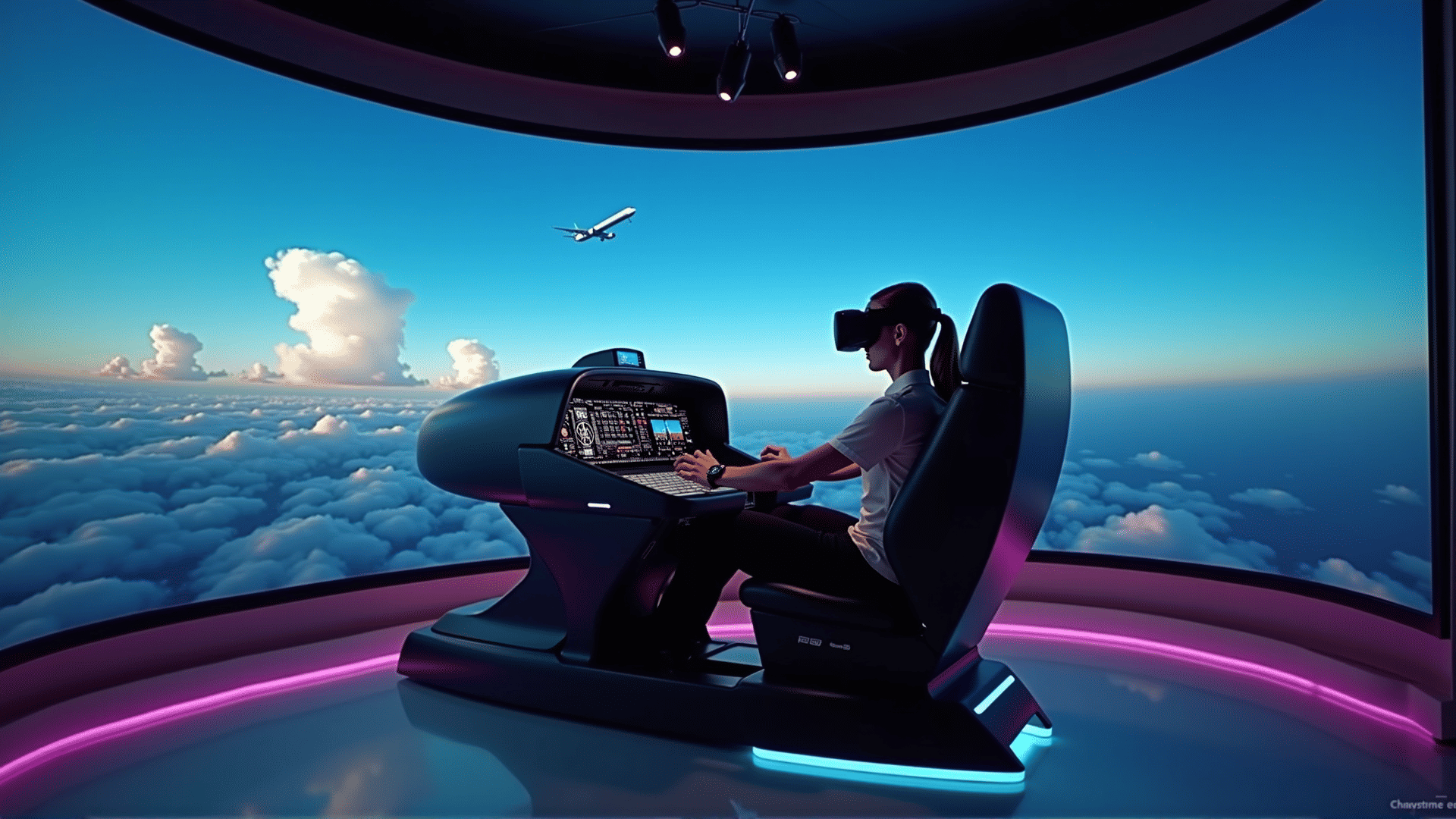Online flight simulation has long fascinated aviation enthusiasts, gamers, and professionals alike, offering an accessible escape into the skies without ever leaving the ground. As technology continues to advance at an unprecedented pace, so too does the world of flight simulation, promising exciting developments that will redefine immersion and realism. Let's explore the trends and technologies that are set to shape the future of online flight simulators.
At the forefront of this evolution is Virtual Reality (VR) integration, which is rapidly transforming the user experience in flight simulators. VR offers a level of immersion that traditional setups cannot match, allowing users to feel as though they are truly inside the cockpit. With headsets becoming more affordable and sophisticated, developers are increasingly focusing on creating VR-compatible simulators that not only replicate the visuals of flying but also integrate haptic feedback to mimic the physical sensation of flight. This tactile experience could include vibrations, wind simulation, and even the sensation of G-forces, all designed to provide a fully immersive environment.
In addition to VR, the emergence of hyper-realistic environments is another significant trend. Driven by advancements in graphics technology, these environments aim to replicate real-world landscapes with remarkable precision. By leveraging satellite data and AI-driven terrain generation, developers can create virtual worlds that mirror the intricacies of Earth's geography, weather patterns, and even cityscapes with stunning accuracy. This not only amplifies the realism for gamers but also provides a valuable tool for pilot training, allowing trainees to practice navigation and landing maneuvers in any global location under realistic conditions.
Moreover, the integration of artificial intelligence is set to revolutionize the interactivity within flight simulators. AI-driven non-player characters (NPCs) can provide a dynamic and responsive environment, including air traffic control communications and the behavior of other planes in the sky. This adds a level of unpredictability and challenge that mirrors real-world aviation scenarios, enhancing both educational and entertainment value.
Another exciting development is the advent of multiplayer experiences. Online flight simulator communities are increasingly popular, where players from around the world can fly together in shared airspace. Multiplayer features will continue to expand, incorporating cooperative and competitive modes that allow users to collaborate on complex flight operations or engage in aerobatic competitions. These interactions not only enrich the playing experience but also foster a sense of community among enthusiasts.
The accessibility of flight simulators is also on the rise, as developers aim to make these experiences available across a wider array of platforms. With cloud gaming technology, users will soon be able to stream high-fidelity simulators on any device with internet access, eliminating the need for powerful hardware. This democratization of access ensures that anyone with an interest in aviation can participate, regardless of their equipment.
Lastly, as the sustainability movement gains momentum, flight simulators are also evolving to promote eco-conscious practices. Simulators can serve as vast testing grounds for new environmental aviation technologies, allowing users to engage with concepts like electric aircraft, biofuel usage, and efficient flight planning. This not only educates the public about aviation's role in sustainability but also encourages a mindset shift toward greener flying.
In summary, the future of online flight simulation is marked by innovations that push the boundaries of immersion, realism, and interactivity. From the exhilarating depths of virtual reality to the pinpoint accuracy of hyper-realistic environments, these advancements promise to captivate the imagination of gamers and professionals alike. As these technologies continue to intertwine, the next generation of flight simulators will undoubtedly offer an unparalleled and transformative experience in the digital skies.
